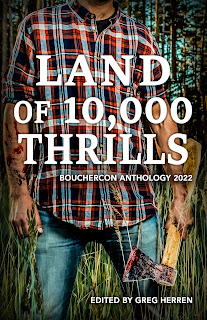About twenty years ago, a new TV show aired with a big-name star (whose name, ironically, I can't recall) about a newspaper reporter. I was a former newspaper reporter—I'd loved being a reporter (mostly)—and had been eager to see the show. But I ended up watching only a couple of episodes because the show was ridiculously over-the-top. I remember complaining about it to a friend (another former reporter). Why, I said, can't there ever be TV shows about journalists that are realistic? And he said, "You want to watch a TV show about taking notes in meetings or interviewing people on the phone?" He had a point (and he hadn't even mentioned the third prong in the triumvirate of fascinating things reporters do: type up their articles). While the articles reporters write may be interesting, the news-gathering process? Not so much.
Yet the new show Alaska Daily is proving my old friend and me wrong. Airing at 10 p.m. ET Thursdays on ABC, and available for streaming on Hulu, Alaska Daily is my favorite new show of the season. I've read reviews complaining about the show, but I'm going to focus on what I like about it: it puts a spotlight on the importance of local journalism at a time when so many newspapers are going under, leaving many communities without a watchdog of their powers that be.
The show has what I'm assuming will be a season-long arc, in which series star Hilary Swank, playing a big-deal NY reporter who's pushed out of her job, moves to Anchorage, Alaska, to work at the city newspaper (the fictional Daily Alaskan) to investigate the crisis of missing Indigenous women. Swank's character is teamed up with an Indigenous reporter, played by Grace Dove, and in each episode they make some (sometimes significant) progress. This is an important story line based, sadly, on real life.
Each episode also has a stand-alone story line. These have included:
- A state official who misappropriated public funds
- A radicalized local man who is stockpiling bomb-making materials. (The story stemmed from a reporter interviewing the winner of the largest cabbage at the state fair, and you can't get more local journalism than that.)
- A beloved Anchorage restaurant owner selling out to a chain
Do I have issues with the show? Sure. For instance, the episode about the restaurant ended with the reporter writing a first-person article about the restaurant and why it was important to her and her family and why the owner had sold it. It was heart-stirring, but it blurred the line between news articles and opinion pieces—something that's already too blurry in too many people's minds. Nonetheless, I liked the episode. I've liked all the episodes, in fact, because they show reporters doing what reporters actually do: interviewing people, gathering facts, and making a difference in their community. (Wanting to make a difference, that's why everyone I knew who was a reporter went into the industry; it certainly wasn't for the money or for glamour.)
I like the reporters at the Daily Alaskan, even Swank's bristly character, who I assume will be toned down as the season progresses as she learns from her experiences and grows. I like the paper's newsroom, set in a strip mall because of financial issues (which is why they have a tiny staff, like so many real newspapers today that are struggling to survive). I like the paper's commitment to doing journalism right.
So often these days, people see reporters as the bad guys. Alaska Daily puts its reporters in a positive light, and that's why I'm tuning in each week. I hope you'll check it out too.
***
While I have your attention, I'll be appearing this Saturday, Nov. 12th, at a Mystery Author Extravaganza at the Miller Library in Ellicott City, Maryland, along with fourteen other authors from the Chesapeake Chapter of Sisters in Crime. We'll be talking about our new books and stories published this year. Books will be available for sale. Click on either link in the next paragraph to get the full list of participating authors.
The event is free and open to the public (no matter where you live). It starts at 1 p.m. Eastern Time. You also can watch over Zoom if you can't attend in person. To register to attend, click here for in-person or here for Zoom. (Walk-ins to the in-person event are welcome if you decide at the last minute to attend.) The library's address: 9421 Frederick Road, Ellicott City, MD 21042.
























